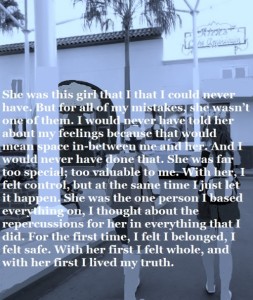First published Psych Central
I have a thought and mood disorder called schizoaffective disorder. It is similar to bipolar disorder, in that I have mood swings with periods of mania and depression.
When I was treated for my first severe manic episode I was heavily sedated and slowly titrated down on the medications. When I got to a dosage where I was no longer sedated, and my symptoms were under control, I started to feel okay, good even.
It scared me. “Would I feel too good?” I voiced my concerns to my psychiatrist and he reminded me I usually have other symptoms that precede mania. I think most people do.
You could go through a list of symptoms and see which ones are typical for you that would be noticeable.
Do you spend a lot of money?
Are you impulsive?
Do you talk fast?
Do you start lots of projects?
A lot of people monitor their sleep. I often have trouble with insomnia, so that isn’t a particularly good indicator for me. One thing is that I get irritable. I am usually pretty mellow, so if I start snapping at people that is a good sign that something is off. My psychiatrist also told me if people are looking at me strangely that is a warning sign. I am not sure if he meant I do strange things or I get paranoid, which I do, and get suspicious.
Isn’t everyone entitled to an off day, though? Sometimes when I am upset at someone, it is for a good reason. A lot of people imagine others think poorly of them, once in a while.
It would help to have someone I trust, tell me if I didn’t seem right. I have trouble with trust, though, when I am symptomatic. I think everyone else has the problem and I am fine. I am working on that, because I know it is important. Otherwise, you can have a great list of warning signs, but deny them. “I’m not talking fast, you are just listening slowly”.
Once you notice these warning signs, what do you do? That is a million dollar question.
This is where it is best to consult with your doctor and find out when they want you to contact them.
It is also good to come up with a Wellness Recovery Action Plan (W.R.A.P.) to prepare.
It is good to catch things early, but you don’t want to be worrying every time you have a bad, or good, day.
